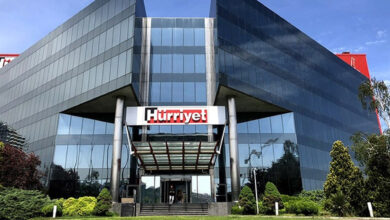Unraveling the Mysteries of Aoomaal: A Comprehensive Guide

Introduction
In the realm of personal finance and wealth management, the term “Aoomaal” holds significant importance. Whether you’re a seasoned investor or just starting your financial journey, understanding Aoomaal is essential for making informed decisions about your money. In this comprehensive guide, we’ll delve deep into the concept of Aoomaal, exploring its meaning, significance, and practical implications.
What is Aoomaal?
Aoomaal, also spelled as “Amwal” or “Amal,” is an Arabic term that translates to “wealth” or “assets.” In the context of Islamic finance, Aoomaal encompasses all forms of material possessions, including money, property, investments, and tangible assets. It represents the financial resources that individuals possess and manage to fulfill their needs and obligations while adhering to Islamic principles.
Understanding the Significance of Aoomaal in Islam
Aoomaal plays a pivotal role in Islamic finance and jurisprudence, shaping various aspects of economic activities and transactions. Its significance stems from several fundamental principles in Islam, including:
- Stewardship and Accountability: Muslims believe that Aoomaal is a trust from Allah (God) and must be managed responsibly and ethically.
- Wealth Redistribution: Islamic teachings emphasize the equitable distribution of wealth and the obligation to support the less fortunate through charitable giving (Zakat) and voluntary contributions (Sadaqah).
- Prohibition of Riba (Interest) and Unlawful Gains: Aoomaal must be acquired legally, and engaging in interest-based transactions or unethical practices is strictly prohibited in Islam.
Practical Applications of Aoomaal
Managing Aoomaal in accordance with Islamic principles involves various considerations and practices:
- Halal Investments: Investors seek Sharia-compliant investment opportunities that adhere to Islamic guidelines, avoiding industries such as alcohol, gambling, and conventional finance.
- Zakat Calculation and Distribution: Muslims calculate and pay Zakat annually, typically amounting to 2.5% of their eligible assets, to support the needy and deserving individuals in society.
- Estate Planning: Planning to distribute Aoomaal after death involves ensuring that inheritances are distributed by Islamic law (Sharia) and fulfilling any religious obligations, such as bequests and charitable endowments.
Comparing Aoomaal with Conventional Finance
| Aspect | Aoomaal (Islamic Finance) | Conventional Finance |
|---|---|---|
| Principles | Guided by Islamic Shariah | Governed by secular laws and norms |
| Interest | Prohibited (Riba) | Commonly used for borrowing and lending |
| Investments | Restricted to Shariah-compliant assets | Diverse range of investment options |
| Wealth Distribution | Emphasizes equitable wealth distribution | Driven by market forces and regulations |
| Ethical Considerations | Ethical and social responsibility integral | Ethical considerations may vary |
FAQs About Aoomaal
Q: What are the key principles of Aoomaal in Islamic finance?
A: The key principles include stewardship, wealth redistribution, prohibition of Riba (interest), and ethical acquisition and use of wealth.
Q: How is Zakat calculated on Aoomaal?
A: Zakat is typically calculated at a rate of 2.5% on eligible assets, including cash, gold, silver, investments, and business inventory, after deducting essential expenses and debts.
Q: Can I invest in stocks and mutual funds in Aoomaal?
A: Yes, you can invest in Shariah-compliant stocks and mutual funds that adhere to Islamic investment guidelines, avoiding industries such as alcohol, gambling, and conventional finance.
Conclusion
In conclusion, Aoomaal represents more than just material wealth in Islamic finance; it embodies principles of responsibility, ethical conduct, and social welfare. By understanding the significance of Aoomaal and adhering to Islamic principles in managing wealth, individuals can achieve financial success while contributing to the well-being of society in a morally and ethically sound manner. Whether it’s investing, charitable giving, or estate planning, integrating Aoomaal principles into financial decisions can lead to greater prosperity and fulfillment, both in this life and the hereafter.
Read Top Story: Click Here.




